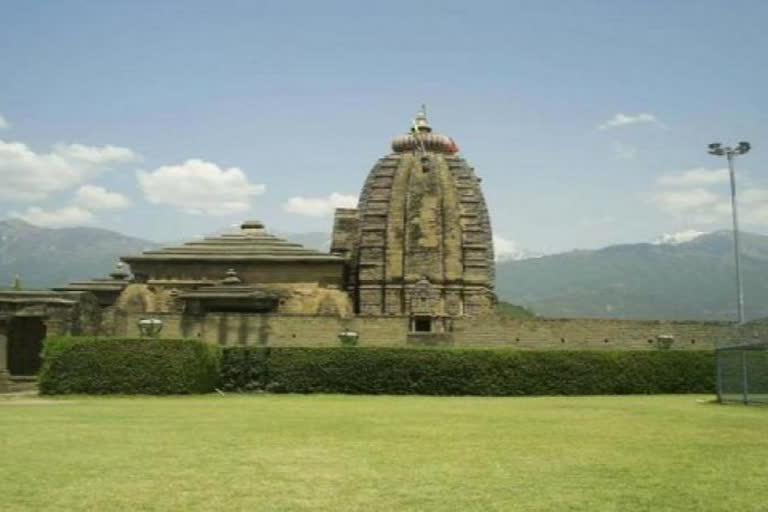Baijnath: When India celebrates the victory of good over evil on the auspicious occasion of Dussehra by burning the effigy of Ravana, this quaint town in Himachal Pradesh do not observe the festival to avoid bad luck.
The matter of fact is that Baijnath town of Himachal Pradesh has a famous temple of Lord Shiva where Ravana had worshipped to receive special powers.
In total contrast with the nation's celebration, Dussehra is just like a regular day for residents of Baijnath. When the nation celebrates the day with great fervour and gaiety, the residents of this ancient pilgrimage town of Himachal Pradesh, known for the 13th century-old Lord Shiva temple remain aloof from the festivities.
Located at 4,311 feet, the small town located amid the scenic Dhauladhar mountain range of the Himalayas is home to Baijnath temple which is believed to have seen uninterrupted worship since its construction in 1204 A.D.
Explaining the rationale for not celebrating Dussehra in Baijnath, Prem Parshad Pandit, member secretary of the high-powered committee of Himachal temples, said that the residents of the town believe that participating in the celebrations means inviting the wrath of Lord Shiva.
"People believe that Baijnath is the place where Ravana meditated for years to appease Lord Shiva. As a result, Lord Shiva does not want his devotees to burn the effigy of his greatest disciple," Mr Pandit said.
"There is also a myth that anybody from the town who participates in the effigy-burning ceremony will die an unnatural death. The fear of death is so strong that the residents prefer to stay away from any kind of celebrations,” he said.
Even the town and its nearby villages do not have any goldsmith shop because of the same religious belief.
"When Ravana's father was laying foundation stone for the establishment of Sri Lanka. A goldsmith came to the place disguised as Vishwakarma and the Lord offered him 'Dakshina'. When Lord came to know that he was not Vishvakarma. He got angry and subsequently cursed him," said a devotee, who came to visit the Baijnath temple in the town.
"Ravana cursed him saying goldsmiths cannot exist where Lord Shiva and me co-exist. Since then no goldsmith shops have been opened in the town," he added.
The shrine is a beautiful example of the early medieval north Indian temple architecture known as the Nagara style of architecture. It's a protected monument maintained by the Archeological Survey of India.
Also read: Hands which once held hockey stick now mend shoes for a living



